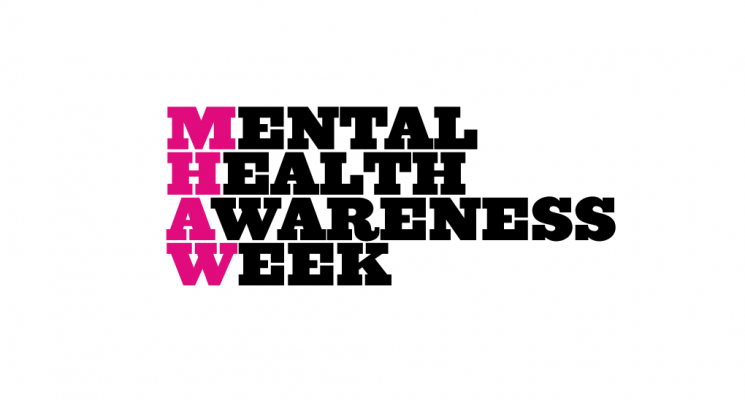Saving Money Addict
Saving Money Addict
Money makes the world go round, but are you addicted to saving money?
There is a famous saying “Money makes the world go round” and many claims that this is not true. However, saving money plays a vital role in everyday life. Money in itself is of little worth however what you can achieve with money can be life-changing; be it sending your child to a private school, paying for a holiday or even paying for your lunch. Money can be the cause of upset and success however for some money can become a huge problem and can even become an addiction. Be it an addiction to saving money relentlessly or spending your money in uncontrollable ways. Saving money is a great thing and many of us are unable to save money. However getting carried away to saving money can cause issues. So how can you tell if you have an addiction to saving money?
Savings Addict?
- Do you feel guilty when you spend money?
- Do you feel like you have to justify the money you spend?
- Do you always look for vouchers and sales?
- Do you always search for reduced things?
If the answer is yes to these questions then you could potentially have an addiction to saving money!
So when do you know you have a real addiction? It is all well and good for controlling your money but it can become a serious problem! So when do you know that you have a real addiction to saving money? A big hint is how much it consumes your life! If you go into a shop and obsess over the cost of each individual thing and worry about the total bill at the end of the shop this could become problematic. Is it overpowering to the extent that you cannot enjoy small things in life? Such as feeling guilty for buying a 60p chocolate bar? If you think that you are addicted to saving money make sure you talk to someone about it! Addiction can be a huge problem within itself but it can lead to other issues such as anxiety (being worried about going out and spending money) and depression (being low and upset about your spending habits).
Here at The Blue Tree Clinic, we are here to help you! We will give you a shoulder to cry on and a listening ear! We will give you tips, tricks, and skills to help you find logical and reasonable ways of saving money but still living! But in the meantime here are:
Our top tips of letting go of the control.
– Make a spreadsheet of how much money you have coming into the bank and how much you need to save and how much you can spend every month without feeling guilty, be it £10 or £100.
– Compromise! Save for something you really want or need rather than spending money that in a months’ time won’t be used and will most likely be thrown in the bin.
-Enjoy the little things! It is okay to spend that 2 pounds for a coffee! ESPECIALLY if it puts a smile on your face!
-If you do need to save for something important remember you are just as important and your mental health and wellbeing is a priority! SO whilst saving is important don’t forget to occasionally treat yourself
-Talk about the fact that you are struggling! Friends and family have probably had moments where they have had to save intensely! Ask them how they coped! They may even treat you to that magazine you so badly want but cannot justify!
Contact Our Private Consultant Psychiatrists in London, having a huge amount of experience in addressing and relieving all sort of issues over many years.
Source URL: https://thebluetreeclinic.com/saving-money-addict/
Millenials and Mental Health

Millennials and Mental Health:
Blue Tree intern Maddy Lykourgos discusses the barrier between millennials and mental health services…There has been an increasing amount of attention brought to how millennials deal with everyday life stressors, and they’re often labelled the most lonely, anxious and depressed generation. They have high diagnosis rates of mental health disorders, and suicide is one of the leading causes of death for this group. Concerningly, they are also the least likely to seek treatment, which is particularly unfortunate given that early interventions can lead to lower long-term detriment. So, it stands to reason that there are some barriers deterring millennials from accessing psychological services.
Common barriers include…
- Accessibility: The generation of the millennials is generally highly-educated, but living costs continue to rise and financial burdens restrict them spending money or time on themselves; mental health is often not a priority. With increasing strain on the NHS, more people are being signposted to private services, which can be expensive and inconveniently located. However, clinics, such as The Blue Tree Clinic, are striving to make treatment as accessible to all, offering discounts to people with lower economic means, such as students and a variety of modes such as online, telephone or face to face, to slot into a busy schedule.
- Misperceptions: Although mental health stigma has significantly decreased, for many, it remains difficult to discuss. With highly-trained professionals, it is always the aim that you build a rapport with your therapist and feel comfortable in their company. However, all too often, people maintain the attitude that they don’t need help, that things will pass and, though they may, underlying issues may recur if undealt with.
- Unrealistic expectations of ourselves: In an all-or-nothing culture that holds high esteem to both social and academic achievements, we can easily get carried away with our perfectionistic tendencies to succeed. Moreover, with the advent of social media and Photoshop, society creates unrealistic and false projections of what we may aspire to be or achieve. These pressures can make it difficult to gauge how we are doing personally and places an unnecessary disesteem on wanting to accept help if we feel our goals are unattainable.
What to do…
- Schedule in some time for yourself. Empty time is not wasteful. It is important to create a space for yourself to unwind and reflect on how things are going. In an age of 24-hour digital communication and instant gratification, spare time is often disregarded. It’s arguably more difficult to form meaningful relationships because we are out of practice putting effort into socialising in the same way as previous generations.
- Reshape your ideal of happiness. Do things that you enjoy rather than getting caught up in social media reality and try to be self-aware. It can be helpful to think of a swan elegantly gliding across the water- at least that’s what onlookers see; the part they don’t see is the frenzied paddling of the swan’s feet in order just to stay afloat. Things are rarely as effortless as they look and it can’t hurt to remind ourselves that it’s okay if things don’t come as easily to us as we had hoped. Make sure you know the difference between a problem and a catastrophe. Mindfulness and CBT can be particularly helpful in trying to stay present rather than worrying about the future or dwelling on the past.
- Don’t be afraid to talk about it. It’s natural to fear being vulnerable, and there is something about sitting in front of a stranger and opening up that is particularly daunting. We can find ourselves craving approval from external sources, so in a world where mental health stigma still exists, it can make it harder to be open about our difficulties and getting help to deal with them. It can be extremely isolating to feel as though there is no one to turn to. Checking in with how you’re doing is crucial, even though it may seem like talking about things makes them more real or more of an issue.
Whether it’s because we can’t justify sacrificing the time, or if we don’t know which point or from where to ask for help, millennials seem to struggle to access mental health services, and younger generations seem to be following suit. If it’s a case of not knowing where or what type of psychological intervention to ask for, talking to your GP can be a good way to get suggestions. Additionally, clinics such as The Blue Tree Clinic allow you to have a consultation with a trained professional who will then work with you to ascertain which member(s) of the multidisciplinary team would be most beneficial to you. They’re dedicated to making the whole process accessible and flexible, in order to make you as comfortable as possible. Contact Our Private Psychologist now to get started.
Source URL: https://thebluetreeclinic.com/millenials-mental-health/
Mental Health Awareness week - The Blue Tree Clinic

Mental Health Awareness Week 2018 (14th-20th May)
Blue Tree intern Maddy Lykourgos promotes Mental Health Awareness Week…
This year’s theme for Mental Health Awareness Week is stress and how we cope with it. Naturally, stress impacts our state of mind, mood, emotions and how we perceive the world. In other words, it majorly affects our mental health.
Essentially, we have good stress (eustress) and bad stress (distress). Both are natural responses adapted to release hormones that alert the rest of the body and mind that action must be taken. An example of the former would be something with a tangible goal, a challenging assignment that’s difficult but doable, or goal-oriented physical exercise. In this case, stress levels return to normal once the task has been completed. On the contrary, distress is harder to combat and diffuse; it often takes longer for the individual to recover, because the body remains vigilant against a potential and non-tangible worry. If this state persists it can lead one to withdraw, feel anxious and even depressed.
When we are experiencing stressful periods of time, our adrenal glands secrete more of hormones called cortisol, adrenaline, and norepinephrine. Cortisol is vital to regulating the metabolism, and adrenaline and norepinephrine produce a reaction to threat: the fight, flight or freeze response. However, in stressful situations, even when there is no immediate threat, our body mimics the fear response and these levels are maintained in excess amounts. This is because, without a threatening stimulus, we cannot respond directly to it – that is, we cannot fight, flee or freeze, and therefore, these levels remain high and we stay hypervigilant towards a threat that is not there. Sustained high levels of these hormones can interfere with learning and memory, lower the immune system and cause problems with physical health, such as increasing blood pressure, cholesterol and contributing to illnesses like heart disease.
Moreover, raised levels of hormones like cortisol can deplete the neurotransmitters serotonin and dopamine that regulate our mood. Therefore, stress is closely linked with depression and anxiety, because the physiological sensations we feel, such as racing heart rate and sweating, tell us there is something to worry about and something we have to be prepared for if we are to keep ourselves safe.
As it’s an evolutionary, and often involuntary, response to get stressed, it can feel like we have no control over it; so, a good way to combat stress is to change your perception of it. Negative situations can be awful to have to go through, but only by going through them do we learn that we’re strong enough to do so. It’s not so much that positive thinking will relieve every burden you have, but more a sense of recognizing that we are more resilient than we believe. We have constantly put in seemingly impossible situations and yet somehow we manage. It means we carry an arsenal of life experience that can get us through periods of stress, mostly because we have done so before.
What can The Blue Tree Clinic do to help?
We offer a range of treatments that can help reduce the harmful impact of stress. Approaches such as mindfulness can help with relaxation techniques, or CBT can aid in reframing some of the negative thoughts that may be helping to maintain the stress. Other talking therapies, such as counseling can help to ease the burden of stress on both our physical and mental health by talking through some of our stressors. In the meantime, it can be useful to make a list of specific problems that trigger your stress, and for those that you can do something about, write down a list of solutions; for those that you can’t do anything about, worrying about it is futile, so stop allowing it to get you down. It seems oversimplified, but distinguishing between problems you can and can’t solve allows us some extra time to schedule enjoyable and relaxing activities rather than avoiding these all together and allowing the stress to persist.
In the spirit of Mental Health Awareness Week, we urge anyone experiencing stress or anything else that is impacting their mental wellbeing to contact us now at The Blue Tree Clinic. Contact our friendly Private Therapist for a safe, comfortable conversation.
Source URL: https://thebluetreeclinic.com/mental-health-awareness-week/
What is the Difference Between a Psychologist and a Psychiatrist

What is the Difference Between a Psychologist and a Psychiatrist
It’s a question we get asked a lot. What is the Difference Between a Psychologist and a Psychiatrist?
What is Psychology?
Psychology is a science which looks to investigate the mind and how the mind affects thoughts and behaviours. This can be investigated by looking at how an individual act, interacts with others, and how they think and feel.
What is Psychiatry?
Psychiatry is a medical science which looks at diagnosing, treating and preventing various illnesses and conditions. Psychiatry is usually provided by a doctor who has decided to specialise in mental health.
Psychologist and Psychiatrist
When looking at psychology and psychiatry there are various similarities and differences to bear in my mind. One of the biggest differences between the two is that an individual who practises psychiatry can prescribe medication whereas a psychologist cannot provide medication but rather provides therapy by looking into an individual’s past and teaching the client coping strategies.Another difference between psychology and psychiatry is the training that the professionals will undergo. A psychiatrist will do a medicine degree and then specialize in their area of interest. Our London psychologists will do a bachelor degree, usually in psychology, and then go onto do a clinical doctorate (although other routes are available).Despite psychology and psychiatry being different branches of science, the two often interlink. Clients are often given a mixture of both psychiatric and psychological treatment such as cognitive behaviour therapy being given at the same time as the client being on receiving anti-depressant medication.
Source URL: https://thebluetreeclinic.com/what-is-the-difference-between-a-psychologist-and-a-psychiatrist/
Psychotherapy.. what is it all about?

A little bit of history on……FREUD and Psychotherapy

You may hear the name Freud thrown around a lot and you may know a little bit about him but we are here to help you get a better understanding. So let us start with a little bit of background history …Freud was interested in looking into whether hysteria was due to biological or psychological problems. Freud initially suggested that the symptoms of neurosis were due to painful childhood experiences however he also believed that people were affected by their unconscious mental activity and psychic determination and that neurotic illness was the result of conflict between internal drives. Freud believed that if these patients spoke about how they felt and thought they would benefit and be cured.
From this Freud began to develop various theories and models which he later further developed or eliminated. Over time these ideas became different to Freud’s original ideas and Freud often changed his own view. So what is Freud most famous for!? He became the key founder of psychoanalysis which is a therapy under the “psychodynamic approach” and he was a pioneer of developing its meaning. Freud’s main ideas focused on the idea of the unconscious (what people are not aware of). So now let’s break it down to more manageable bits.
The psychoanalysis approach is interested with the unconscious processes an individual goes through. Freud had lots of developing ideas and thoughts so lets put them in a simple logical order:
Idea 1: Freud’s initially suggested that the mind was divided into three systems; the conscious, the preconscious and the unconscious. The preconscious mind, this is the idea that mental contents can be brought into conscious awareness of the individual, the unconscious mind is where the individual will have memories which are kept from conscious awareness through repression whereas the conscious is simply information which the individual is aware and conscious of.
Idea 2: Freud then went on to develop another model involving the id, ego and superego. Freud suggested that the id was full of unconscious and unorganised sexual/ aggressive drives which could not be verbally expressed as it was not socially or morally acceptable. The ego is the mediator of the id, superego and reality and has the role of mediating drives from the id and superego. It must compromise between the two forces, dynamics, and deal with the external reality. The superego acts as the heir to the oedipulus complex, and has the goal of establishing the individual’s moral conscience. Freud suggested that the Oedipus complex was a normal stage of developed between the age of three and five. During this stage boys are said to be attracted to his mother and develops feeling of rivalry for his father. In females the Oedipus complex is called the Electra complex. An under developed superego is said to cause problems for the individual as the individual will have no sense of right or wrong and leads to unrealistic expectations which ultimately leads to distress and disappointment. Freud suggested that the conflicts between the ego, id and superego resulted in low self esteem, shame and guilt. The Id, ego and super-ego were seen as physical forces with the superego and id being two conflicts from opposing forces which create a third force. What can be seen is that in early Freud was that repression was the gate keeper to the topographical model whereas the later Freud suggested that repression was placed with the ego and was part of the structural model.
Idea 3: Freud strongly suggested that the unconscious thoughts an individual has are controlled by unconscious forces. In Freud’s final theory he proposed two opposing instincts, the eros (life instinct) and thantos (death instinct). Freud believed that the death instinct which later turns against the outside world and underlies aggression.
So all these ideas lead to different therapies:
Freud found that individuals often expressed their unconscious through dreams and so Freud focused on patient’s dreams and suggested that dreams represented an attempt to fulfill wishes which are subnormal and so provided a window into underlying unconscious feelings.The goal of the therapy is to reinact conflict for the client to become self-aware and making the unconscious conscious which in turn allows the individual to make their inner conflict better. The therapists role is to make judgements and interpretations from what the individual is saying and find ways to help the patient cope.
In summary: What were Freud’s main ideas?
1) Previous negative experiences impact future life
2) Things that happen in your earlier life become placed into your unconscious and forgotten about
3) Talking about these negatives experiences will help make you better
At The Blue Tree Clinic, Consultant Private psychologists in London offering private counseling, therapies and treatment options, to help you through difficult times and aid recovery.
Source URL: https://thebluetreeclinic.com/psychotherapy/
The rising fear in the wake of the terror attacks

The rising fear in the wake of the terror attacks - The Blue Tree Clinic
In modern day society people can be fearful of many different things. Unfortunately in the last few years something which has drastically increased is terror attacks. A terror attack is the use of extreme violence against other human beings.
These attacks are usually calculated and planned however conducted spontaneously to leave a shock factor. These attacks are usually motivated by religion or politics.
Terror attacks can occur in various different ways such as bombings, explosive devices, knife crime, guns, amongst other threatening behaviours. The terrorism threat level that the UK is currently experiencing, ranges from the severe to critical; meaning that an attack is highly likely.
Terror attacks are extremely scary and frightening due to their violent nature and unpredictability. Due to this many individuals are now fearful of becoming victim to a terror attack or witnessing one.
At The Blue Tree Clinic, we cannot predict or stop attacks however we can help you think about the terror attacks in a more balanced and realistic manner. Here are some of our top tips to keep yourself safe and to try and reassure you.
1) Do not avoid situations – continue enjoying life – just be vigilant
2) Talk to each other! AND talk to children about it. It is best to have an open and honest discussion about the best thing to do in those situations. Discuss your worries and fears and work through them together. Better spoken about then left saying nothing!
3) If you are frightened – expose yourself slowly. Make slow steps. Go outside, go to a café, go to a shopping center. Build it up.
4) Be realistic – unfortunately, attacks will continue but being vigilant yet living your life is the best thing to do
5) DO NOT discriminate – often attacks are conducted under the names of religion and politics. These people DO NOT represent their religion so do not hate others who share their religion. Which leads to…
6) LOVE. Show extra kindness and compassion to others. Coming together and uniting defeats all hate crimes!
As well as general tips we have created a quick tip list in case you ever feel in imminent danger!
In an attack
1) If you see anything which makes you feel uncomfortable – Inform the police- better safe than sorry!
2) If you feel in immediate danger call 999 and if you can RUN.
3) If it is SAFE to – inform others that they must run to safety
4) Find cover- behind a strong structure such as a pillar or wall.
5) Look for an exit! – Or hide somewhere safe until you can reach that exit.
6) Don’t let them see or hear you! Try to remain as quiet as you can. Turn your phone to silent and try to remain still
7) Try to be aware of what is going on – in these situations, it can be difficult but you may be able to help yourself or others later on.
8) LISTEN to police officers
9) Breathe – try not to scream. Being rationale and clear is the best thing you can do.
10) If you are safe – let someone know, via text, facebook, social media.
We hope there are some valuable and helpful tips. Look after each other. Stay safe and do not live in fear of the unknown.
Book an appointment today with our no. 1 rated, The Private Therapy Clinic - The Blue Tree Clinic. Our Clinic has locations in London’s Harley Street and in Bristol and the South West. We provide treatments for all your mental health needs.
Source URL: https://thebluetreeclinic.com/rising-fear-wake-terror-attacks/
What Can You Expect If You Decide To Visit a Consultant Psychiatrist?
What Can You Expect If You Decide To Visit a Consultant Psychiatrist?
Making the first Step to seeing a consultant psychiatrist…
Deciding to see a consultant psychiatrist is a big step and one you should be exceptionally proud of. A lot of people worry about going to see a psychiatrist, as they worry they are going to be judged, and they find the situation extremely intimidating. However, this is something you really do not need to worry about, as a psychiatrist’s job is to make you feel as comfortable as possible. Someone with a lot of experience will empathize with you and understand what you are going through; they certainly won’t judge you.
What can I expect?
Upon your first meeting with a psychiatrist, they will get to know you and thus you can expect general questions about your life, your job, your relationships and any other significant events. Aside from this, the psychiatrist will ask you about your mental health and the issues you are facing, this includes finding out about your symptoms and the impact they are having on your life. It is vital to point out that a psychiatrist can help with virtually any problem relating to mental health, such as stress, post-traumatic stress disorder, personality disorder, obsessive-compulsive disorder, eating disorders, depression, chronic pain, anxiety, addiction and much more.
What type of therapy?
Once the psychiatrist has got to know you a bit better, they will assess the effects your mental health problem is having on you. The goal is to determine whether the best course of treatment is therapy, medication or a combination of both. This all depends on your situation. Some people would prefer to deal with the issue without medication, however for some people therapy can be too painful. You can be sure the psychiatrist will be concerned about making things as comfortable yet effective as possible.All in all, you can be sure of a relaxing and non-judgemental environment when visiting a consultant psychiatrist. A lot of people worry that going to a ‘shrink’ means that they are crazy – but there are many individuals all over the world that have problems, and this doesn’t reflect badly on you, yet it’s important that you deal with your issues so you can have a more enjoyable and stress-free life. You may also want written reports and your psychiatrist should be able to provide you with this. They may also liaise with your GP or other medical doctors to ensure your road to recovery is as effective as possible.
Our friendly and private London Based Consultant Psychiatrist, Dr. Mark Silvert has had over 15 years of successfully treating patients, he will listen to your story and together you’ll make a plan to get back on the road to recovery.When you arrive at The Blue Tree Clinic, our psychiatrists will meet with you and talk to you in general about your life, events, job, and relationships.
Source URL: https://thebluetreeclinic.com/what-can-you-expect-if-you-decide-to-visit-a-consultant-psychiatrist/

